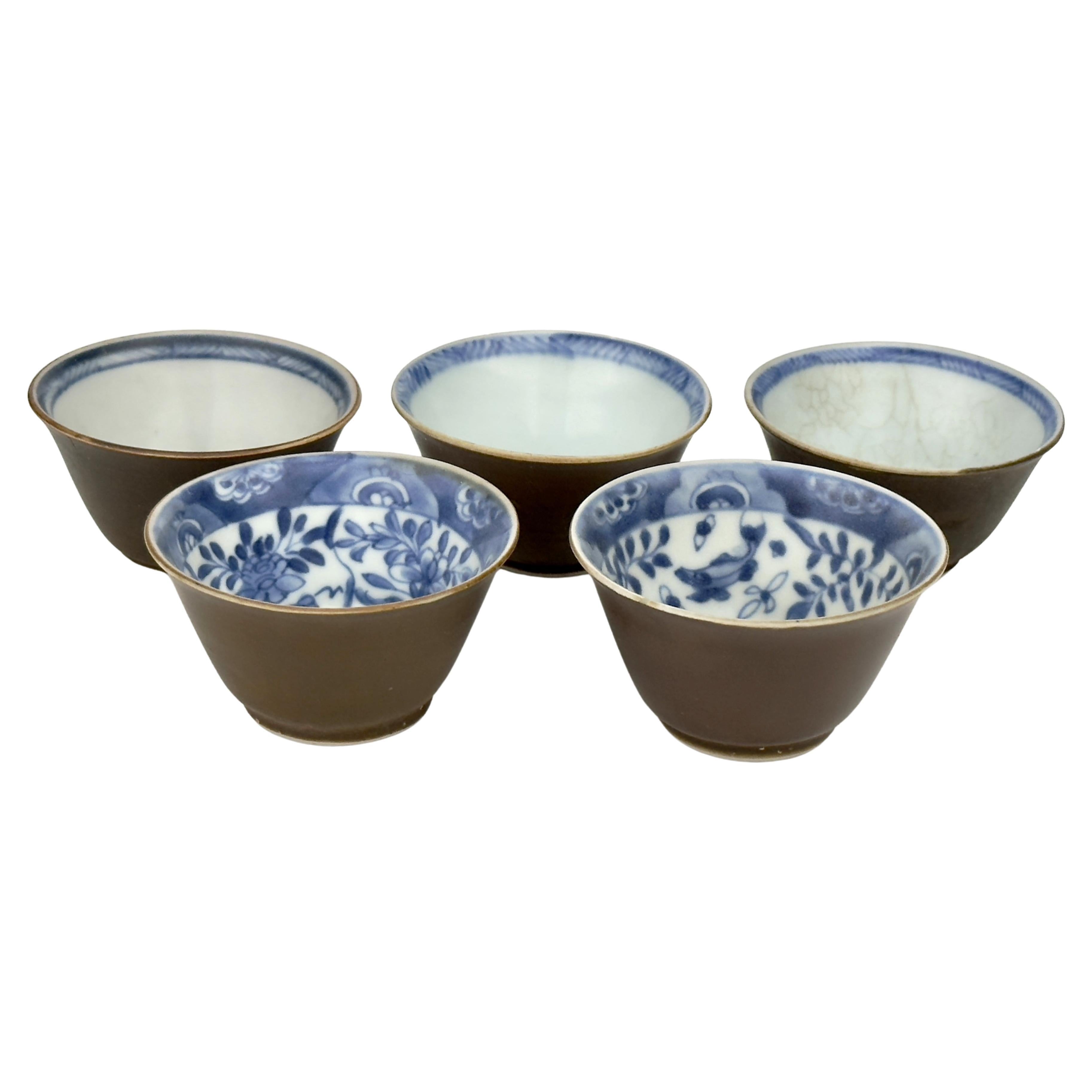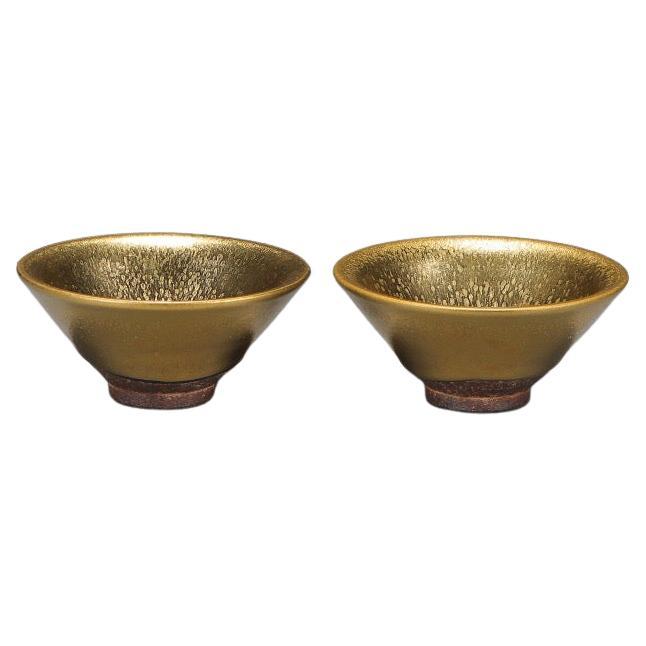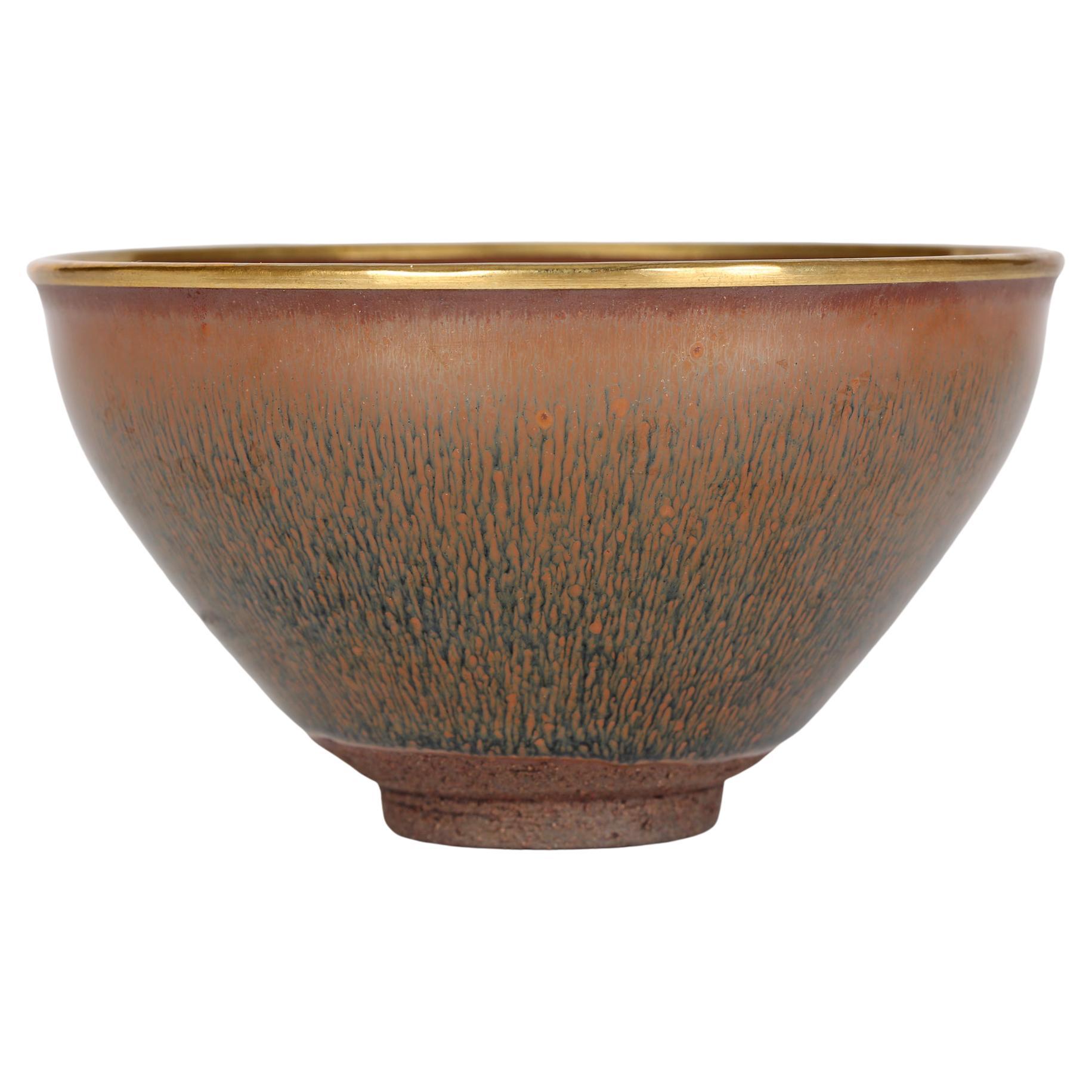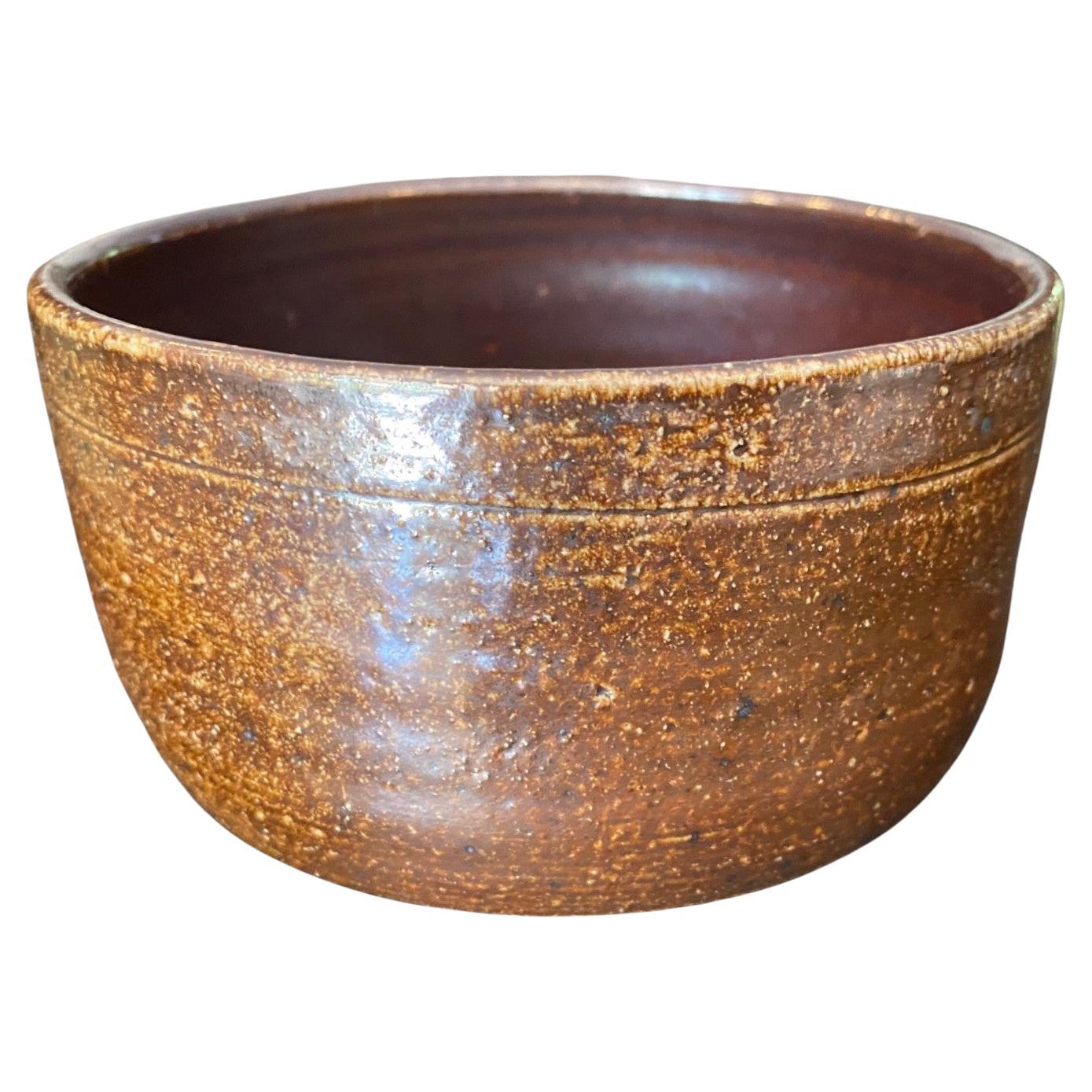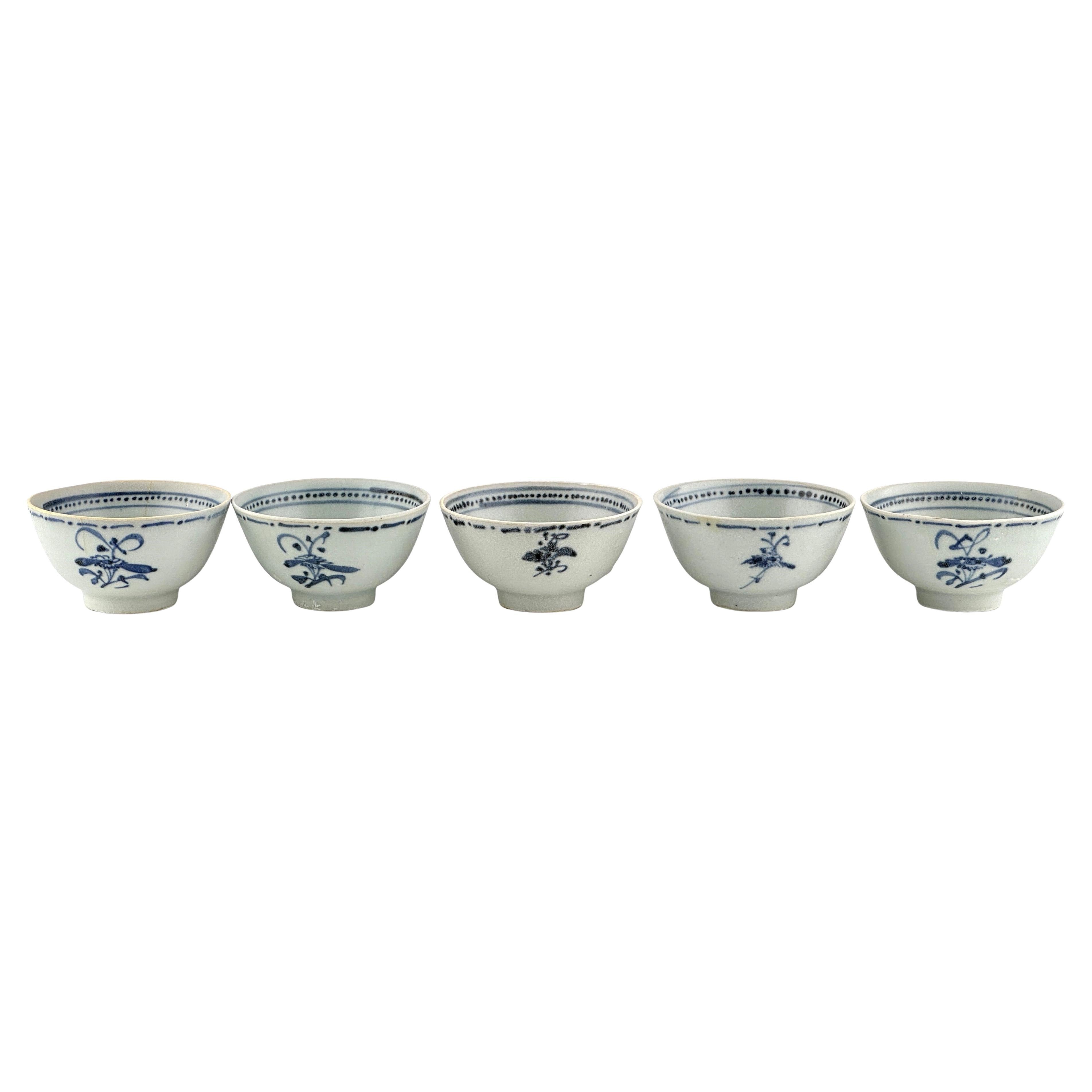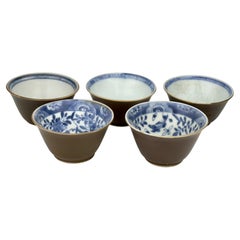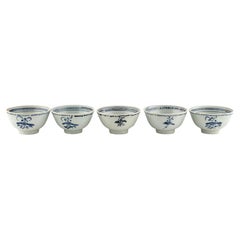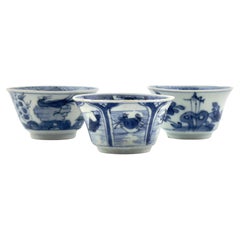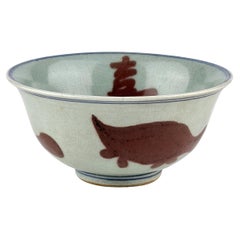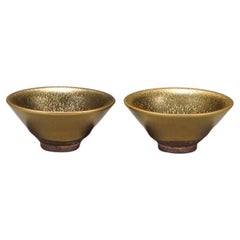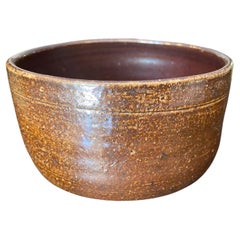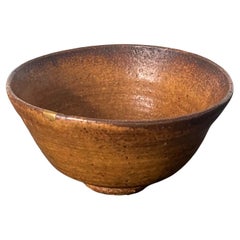Items Similar to Brown Glazed Teabowls from Ca Mau Ship, Qing Dynasty, Yongzheng Era
Want more images or videos?
Request additional images or videos from the seller
1 of 10
Brown Glazed Teabowls from Ca Mau Ship, Qing Dynasty, Yongzheng Era
$1,260per set
$1,800per set30% Off
£950.05per set
£1,357.21per set30% Off
€1,094.80per set
€1,563.99per set30% Off
CA$1,747.96per set
CA$2,497.09per set30% Off
A$1,958.58per set
A$2,797.97per set30% Off
CHF 1,019.52per set
CHF 1,456.45per set30% Off
MX$23,960.22per set
MX$34,228.89per set30% Off
NOK 12,940.87per set
NOK 18,486.95per set30% Off
SEK 12,222.49per set
SEK 17,460.70per set30% Off
DKK 8,172.87per set
DKK 11,675.53per set30% Off
Shipping
Retrieving quote...The 1stDibs Promise:
Authenticity Guarantee,
Money-Back Guarantee,
24-Hour Cancellation
About the Item
These teabowls feature a simple yet elegant form, finished with a brown glaze that creates a smooth, subtle sheen. They have thin, evenly crafted walls and a small, stable footring that provides balance and functionality. The brown glaze exhibits a natural tone with soft gradations.
Period : Qing Dynasty, Yongzheng Period
Production Date : C 1725
Made in : Jingdezhen
Destination : Netherland
Found/Acquired : Southeast Asia , South China Sea, Ca Mau ship
Condition : Excellent (Slightly worn due to sea salt)
Reference : Double checked with reference to the original catalogues
1) Tau Co Ca Mau(The Ca Mau Shipwreck) Catalogue 2002 / The National Museum of Vietnamese History
2) THE CA MAU SHIPWRECK PORCELAIN : from the Collection of Dr.Zelnik , 2000
3) Sotheby’s Amsterdam, 2007 : Made In Imperial China / Sotheby's
4) Asian Ceramic Found along Maritime Silk Route / National Maritime Museum of Korea
* The Ca Mau Cargo
The Ca Mau Cargo refers to a Chinese cargo sunken sometime between 1723 and 1735 off the coast of Vietnam’s farthest point in the South China Sea, discovered by Vietnamese fishermen in 1998. It is believed the ship was a Chinese merchant’s cargo on its way from Canton (Guangzhou) to Batavia when it caught fire and sank. The merchant had ordered the goods on board for Dutch traders, who had limited access to China and its ports.
* Porcelain for the European Market
The Ca Mau Cargo consisted of numerous types of porcelain, chinaware and blue and white wares, all designed for the European market. Blue and white ceramics recovered from the cargo appear decorated with the so-called ‘Scheveningen landscape’, also known as ‘Deshima décor’. This motif usually depicted a traditional Dutch fishing village, executed in Chinese style. Chinese wares with Western motives were extremely popular and made to order and were known as ‘China de commande’.
- Dimensions:Height: 1.97 in (5 cm)Diameter: 3.35 in (8.5 cm)
- Sold As:Set of 5
- Style:Qing (Of the Period)
- Materials and Techniques:Ceramic,Glazed
- Place of Origin:
- Period:
- Date of Manufacture:18th century
- Condition:Minor fading. Mild weathering from centuries underwater.
- Seller Location:seoul, KR
- Reference Number:1stDibs: LU9577243278392
About the Seller
4.8
Gold Seller
Premium sellers maintaining a 4.3+ rating and 24-hour response times
Established in 1999
1stDibs seller since 2023
38 sales on 1stDibs
Typical response time: <1 hour
- ShippingRetrieving quote...Shipping from: seoul, Korea South
- Return Policy
Authenticity Guarantee
In the unlikely event there’s an issue with an item’s authenticity, contact us within 1 year for a full refund. DetailsMoney-Back Guarantee
If your item is not as described, is damaged in transit, or does not arrive, contact us within 7 days for a full refund. Details24-Hour Cancellation
You have a 24-hour grace period in which to reconsider your purchase, with no questions asked.Vetted Professional Sellers
Our world-class sellers must adhere to strict standards for service and quality, maintaining the integrity of our listings.Price-Match Guarantee
If you find that a seller listed the same item for a lower price elsewhere, we’ll match it.Trusted Global Delivery
Our best-in-class carrier network provides specialized shipping options worldwide, including custom delivery.More From This Seller
View AllChinoiserie Teabowl Set Circa 1725, Qing Dynasty, Yongzheng Reign
Located in seoul, KR
The interior of the cups is adorned with intricate designs inspired by nature, such as flowers, trees, and fish. They are skillfully arranged to create a focal point at the base of e...
Category
Antique 1720s Vietnamese Chinoiserie Ceramics
Materials
Ceramic, Porcelain
$973 Sale Price
30% Off
Five Tek Sing Cargo 'Aster Sprays' Tea Bowls, Qing Dynasty
Located in seoul, KR
Five tea bowls, which have been salvaged from the Tek Sing, each decorated with aster sprays within a dot-dash line and featuring rims with a narrow band of dots between two parallel...
Category
Antique 1820s Indonesian Qing Antiquities
Materials
Ceramic
$1,495 Sale Price
35% Off
Three Ca Mau Ship Teabowl Set Circa 1725, Qing Dynasty, Yongzheng Era
Located in seoul, KR
These blue and white teabowls showcase bird-and-flower and crab motifm decorated with blooming flowers and a flying bird, representing the vibrancy of nature. The fine brushstrokes u...
Category
Antique 18th Century Vietnamese Qing Ceramics
Materials
Ceramic
$910 Sale Price
30% Off
A Copper-Red Ceramic Bowl with Auspicious Motifs, Ming-Early Qing Dynasty
Located in seoul, KR
A copper-red produced in Jingdezhen, China, during the Ming to early Qing dynasty (15th–17th century). It features a copper red applied over a bluish-white glaze, which is glaze type...
Category
Antique 16th Century Hong Kong Ming Antiquities
Materials
Copper
$2,660 Sale Price
30% Off
Chinoiserie Teabowl Set Circa 1725, Qing Dynasty, Yongzheng Reign
Located in seoul, KR
Each teabowl is delicately painted with blue pigments, showcasing scenes of mountains, trees, boats, figures, and animals. The graceful brushstrokes and gentle curves evoke tradition...
Category
Antique 1720s Vietnamese Chinoiserie Antiquities
Materials
Ceramic, Porcelain
$973 Sale Price
30% Off
Rare Annamese Stoneware Bowls with Brown-Green Glaze, Vietnam, 14th–15th Century
Located in seoul, KR
This finely matched pair of Annamese stoneware bowls exemplifies the refined ceramic artistry of Đại Việt (medieval Vietnam) during the 14th to 15th century. Each bowl is delicately ...
Category
Antique 15th Century and Earlier Vietnamese Antiquities
Materials
Stoneware
$1,596 Sale Price / set
30% Off
You May Also Like
Northern Song Dynasty Jian Kiln Gold Glaze Oil Dripping Bowls Pair
Located in 景德镇市, CN
This pair of Old collection of the Northern Song Dynasty Jian Kiln gold glaze oil dripping bowls is very rare and collectible.
Jian kilns were located in Jianyang, Fujian province,...
Category
Antique 19th Century Ceramics
Materials
Porcelain
Chinese Jian Ware Style Signed Haresfur Pottery Teabowl with Gilded Rim
Located in Bishop's Stortford, Hertfordshire
A very impressive and stylish Chinese haresfur glazed pottery tea bowl in the Jian Ware style, signed to the base, and believe to date from the 20th century....
Category
20th Century Chinese Chinese Export Ceramics
Materials
Metal
Japanese Asian Bizen Yaki Ware Wabi-Sabi Studio Pottery Chawan Tea Bowl
Located in Studio City, CA
A wonderful and well crafted Japanese artisan Bizen ware Chawan tea bowl. Beautifully fired and colored with a touch of natural ash glaze.
Japanese Bizen-Yaki pottery which dates ba...
Category
20th Century Japanese Showa Ceramics
Materials
Pottery, Stoneware
Korean Ceramic Irabo Tea Bowl Chawan Joseon Dynasty
Located in Atlanta, GA
A ceramic chawan tea bowl made in Korea for Japanese market circa 17th century. The chawan is identified as Irabo type. Irabo bowls were essentially con...
Category
Antique 17th Century Korean Other Ceramics
Materials
Ceramic
Kaneshige Toyo National Treasure Signed Japanese Bizen Pottery Chawan Tea Bowl
Located in Studio City, CA
A beautiful, perfectly shaped antique Bizen ware Chawan tea bowl by renowned Japanese master potter/artist Kaneshige Toyo (1896-1967) featuring a unique natural, organic forming ash glaze. Kaneshige is universally considered to be the founder of modern Bizen pottery.
In 1956, Kaneshige was certified as a Living National Treasure (Important Intangible Cultural Heritage) for his work in Bizen Ware pottery/ceramics. Bizen Ware is a type of Japanese pottery traditionally from the Bizen province, presently a part of the Okayama prefecture. It is considered one of the Six Ancient Japanese Kilns (along with Echizen ware, Seto ware, Shigaraki ware, Tamba ware, and Tokoname ware).
The piece is signed/ sealed on the base with one of Kaneshige's traditional incised marks.
A rather engaging and scarce work. Would be a fantastic addition to any Japanese/Asian pottery or Bizen Ware collection or eye-catching stand-alone work in about any setting.
Kaneshige's work can be found in numerous prominent collections and museums including:
Aichi Prefectural Ceramic Museum, Seto, Japan
Brooklyn Museum, NY
Hagi Uragami Museum, Yamaguchi, Japan
Honolulu Art Museum, HI
Ibaraki Ceramic Art Museum, Kasama, Japan
Indiana Art...
Category
Mid-20th Century Japanese Showa Ceramics
Materials
Stoneware
19th Century Lacquered Tea Cups
Located in Santa Monica, CA
Lacquered Tea Cups
These cups attain the highest form of perfection in shape and form. Each is hand carved from a piece of solid wood, and then lined with sil...
Category
Antique 19th Century Chinese Furniture
Materials
Hardwood
More Ways To Browse
Antique Brown Glaze
18th Century Ship
Dutch Ship
Merchant Ship
Sothebys Catalogues
Shipwreck Antique
Qing Dynasty Imperial
Imperial Furniture Co
Brown Salt Glazed
Canton Blue And White
Thin Porcelain Chinese
Antique Korean Porcelain
Sothebys 2000
Blue Salt Glaze
Cargo Porcelain
Shipwreck China
Blue And White Canton China
Amsterdam Batavia
